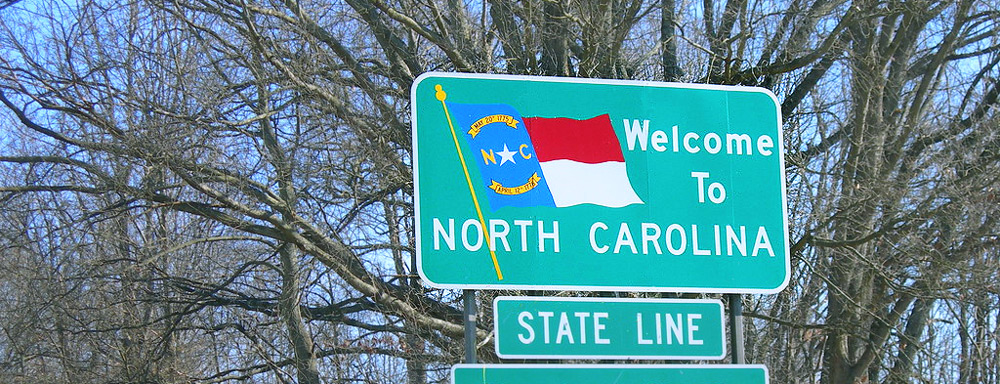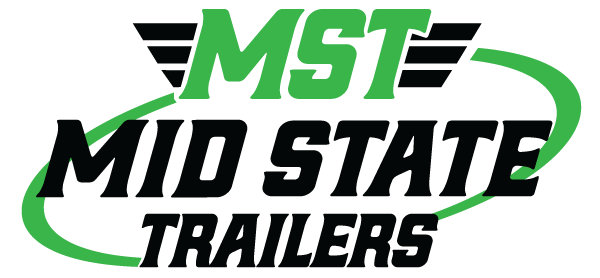Owning a Trailer in North Carolina:
What You Need to Know

Are you considering purchasing a trailer in North Carolina? Do you already own one? Whether you’re a local business owner needing to haul equipment or a private individual with recreational or home improvement needs, understanding North Carolina’s trailer regulations is essential to ensuring safety and efficiency – after all, no one likes paying fines, or worse yet, being slapped with misdemeanors. At Mid State Trailers, we understand the considerations particular to trucking and towing in the Tarheel State, and we’re here to guide you through the process and ensure you make an informed decision.
Do I Need a CDL in North Carolina?
Before diving into the world of trailers, this is the first question you should be asking yourself. I
It’s crucial to understand whether you need a Commercial Driver’s License (CDL) in North Carolina; the last thing you want is to buy a trailer, only to find out you need to wait several months and spend even more money just to use it without fear of legal consequences. Here’s a breakdown of when a CDL is required:
Single Vehicles: If the Gross Vehicle Weight Rating (GVWR) exceeds 26,001 pounds, a CDL is necessary.
Combination Vehicles: For Gross Combined Weight Ratings (GCWR) over 26,001 pounds, with the towed vehicle’s GVWR exceeding 10,000 pounds, a CDL is required.
Passenger Vehicles: Vehicles designed to transport 16 or more passengers, including the driver, mandate a CDL.
Hazardous Waste Transport: If you are transporting hazardous waste using your trailer and/or vehicle, a CDL is required.
What Can I Tow Without a CDL in North Carolina?
Understanding what you can tow without a CDL is vital for both business owners and private individuals. What it comes down to is what your vehicle/trailer is rated for in terms of maximum weight. Here are some key points:
Class A CDL: Required for combination vehicles with a GCWR of 26,001 pounds or more, and towing vehicles over 10,000 pounds.
Class B CDL: Necessary for single vehicles with a GVWR of 26,001 pounds or more, and towing vehicles not over 10,000 pounds.
Class C CDL: Required for single vehicles with a GVWR less than 26,001 pounds, towing vehicles not over 10,000 pounds, designed for 16+ passengers, or transporting hazardous materials.
DETERMINING CLASS OF COMMERCIAL DRIVERS LICENSE REQUIRED

Are There Any Exceptions?
If you find yourself wanting or owning a vehicle with a GVWR of 26,001 pounds or more, but you know that you’ll never be towing that much, you might feel it’s a bit silly that you need a CDL anyway. And, quite frankly, the team here at MST agrees. Your solution then is a little-known practice called “de-rating,” which you can read all about here if you’re curious about what de-rating is, or here if you want how it’s done.When Do I Need to Stop at Weigh Stations in North Carolina?
Weigh stations play a crucial role in ensuring compliance with weight regulations, so it’s important to know when you need to stop at one. Here’s what you need to know about weigh station requirements in North Carolina: Weigh Stops: Law enforcement officers can stop and weigh vehicles, including trailers, to verify weight compliance. Mandatory Stops: Vehicles with a GVWR of 10,001 pounds or more must enter weigh stations as directed by signs or electronic transponders.Rules for Towing a Trailer in North Carolina
Now that you understand the CDL requirements, let’s delve into the rules for towing a trailer in North Carolina:Know Your Weights:
- Single-axle weight: Keep it under 20,000 pounds.
- Tandem-axle weight: Don’t go over 38,000 pounds.
- Axle group: Different rules apply depending on how far apart your axles are.
- Light-Traffic Roads: Some roads have lower weight limits, so be aware of signs.
Exceptions and Special Cases:
- Shifting Cargo: You can adjust your load to meet weight limits if you’re a little heavy.
- Certain Goods: If you’re hauling specific items like farm products on light-traffic roads, you might get a break.
- Emergency Vehicles: They often have different rules to follow.
- Permits: If you’re towing something oversized or extra heavy, you may be able to get a temporary permit at a price that depends on your load’s dimensions and weights. There are fees involved, and breaking the rules can lead to fines.
- Speed Limits for Heavy Loads: The DOT can authorize higher weight limits for trailers on specific roads, but you have to drive slower.
- Penalties: If you don’t follow the rules, you could face fines. Make sure your vehicle is properly registered to avoid trouble.
- Other Exemptions: Some trailers, like those for carrying horses, might not have to stop at weigh stations unless an officer tells you to. Emergency permits can also allow for special travel arrangements.
For more information regarding the specific laws governing commercial vehicles, check out pthis document, or contact your local Department of Transportation office.
Mid-State Trailers: Your Trailer Solution in North Carolina
At Mid-State Trailers, we’re proud to be one of the leading trailer manufacturers in North Carolina. Our facility in Denton specializes in producing high-quality gooseneck, equipment hauling, deckover, and utility trailers tailored to your needs.
Whether you’re a local business owner looking for reliable hauling solutions or a private individual in need of a durable trailer, we’ve got you covered. Our custom-built trailers can handle anything from small loads to large agricultural equipment.
Contact us today at 336-844-2000 and let us help you find the perfect trailer for your hauling needs. With Mid-State Trailers, you can trust that you’re getting a quality product backed by exceptional service.
